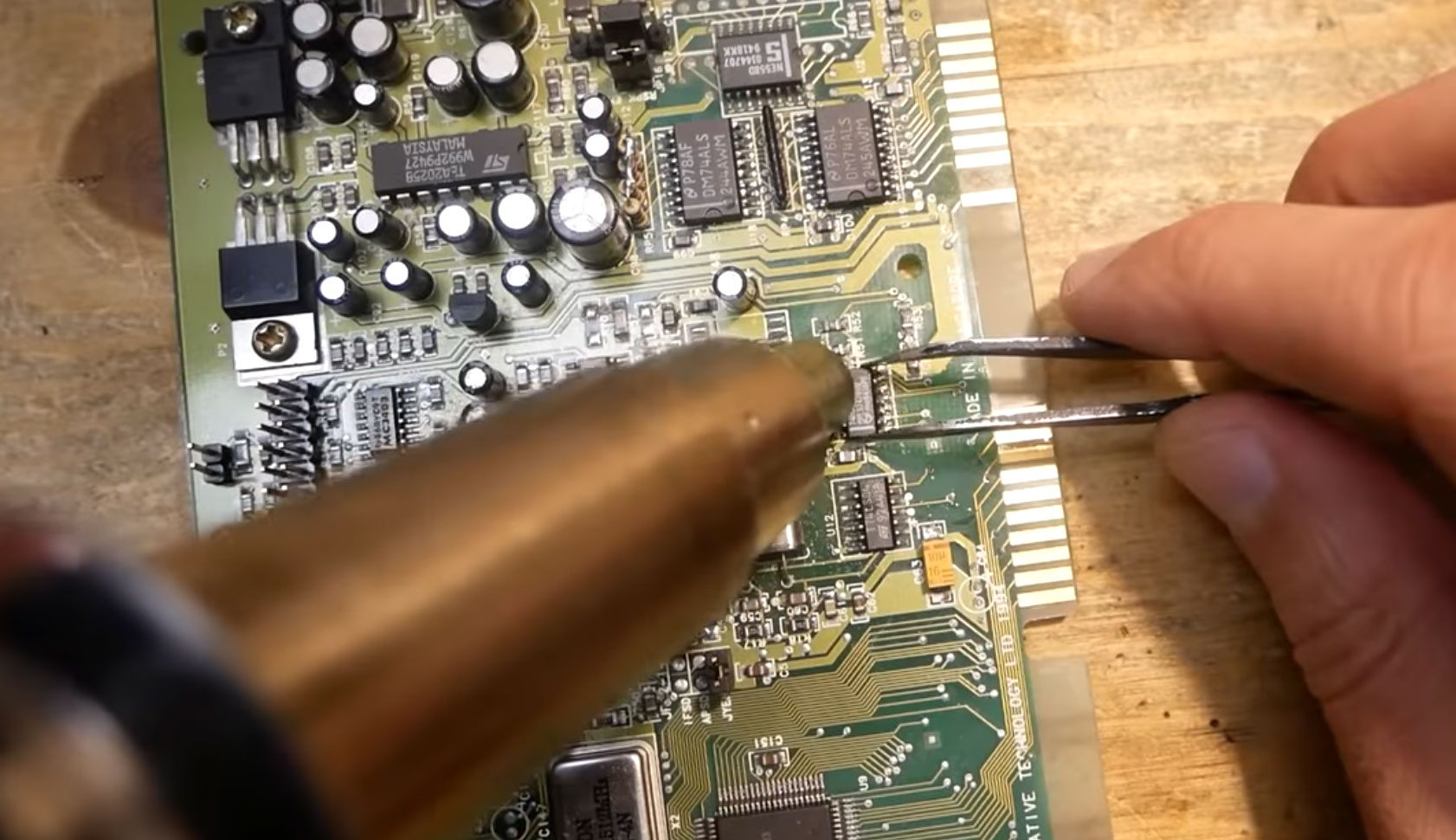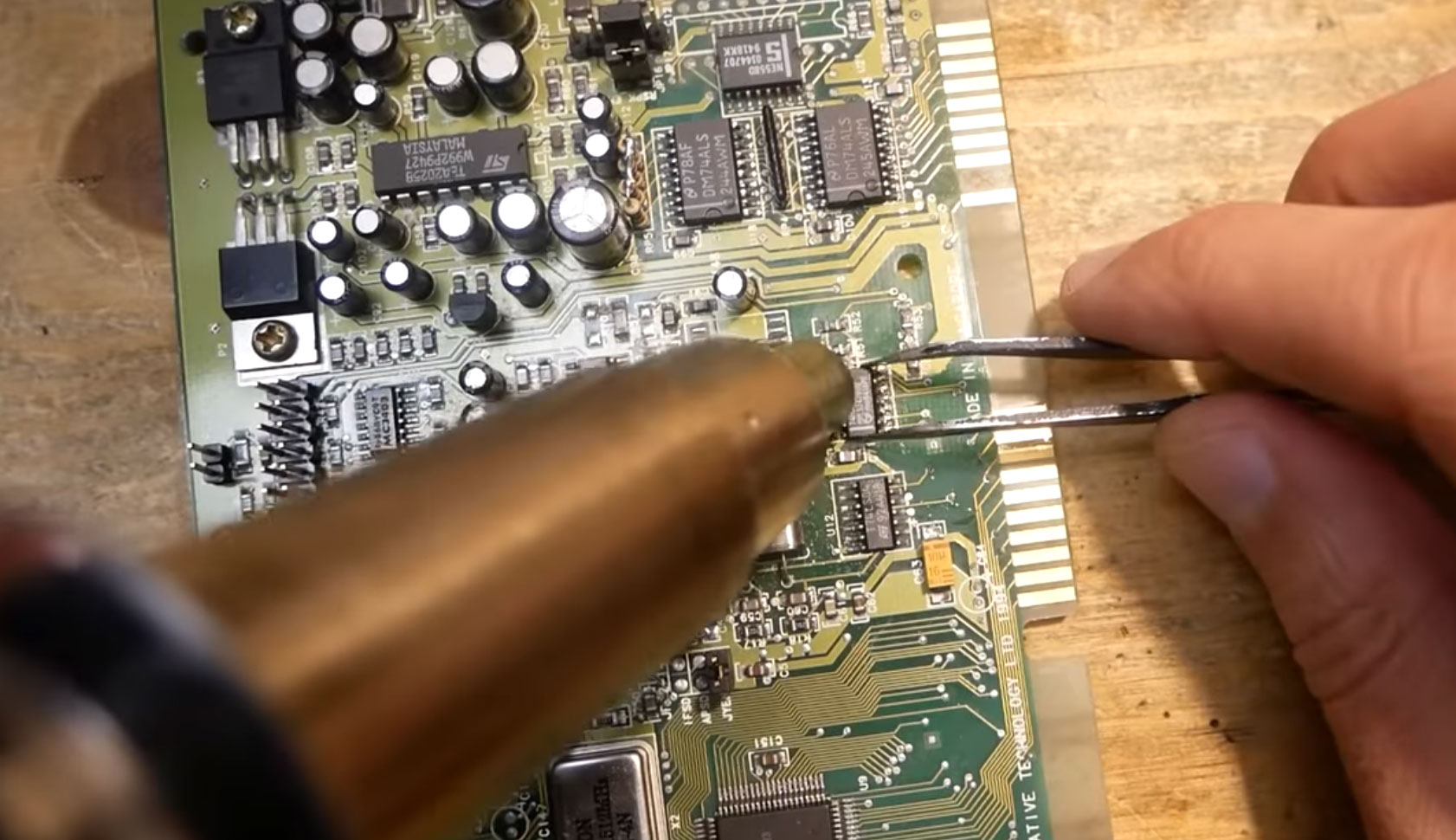Old-school Creative Sound Blaster cards repaired and demoed
Old-school Creative Sound Blaster cards repaired and demoed

Old-school Creative Sound Blaster cards repaired and demoed

Old-school Creative Sound Blaster cards repaired and demoed

Old-school Creative Sound Blaster cards repaired and demoed

I also suspect that a USB-connected DAC is going to have a longer life due to interface longevity.
An old PCI sound card can't be stuck in a PCIe slot. An old ISA sound card --- and I'm pretty sure I was using one of those when USB was around --- can't be stuck in an PCI slot. You can probably find some combination of cards-on-cards that will work, but it's not a straightforwards "plug it in and use it".
You can still use original USB devices on current computers. At some point, computers will probably stop having USB-A and you'll probably need to physically adapt USB-C to it, but the electrical backwards compatibility is still around, and I doubt is going to end any time soon.
Firstly, motherboards for desktop PCs don’t have terrible onboard sound like they might have in the old days.
So, you want to not have electrical noise from your computer spilling into your audio output, true enough. I've had that in the past from on-motherboard DACs, true. But USB power is also often dirty as all hell --- I remember watching some YouTube video of someone running around with an oscilloscope and showing all the stuff that shows up on USB power. It was appalling. I've had noise from USB power spill into external USB DACs that don't have adequate internal power supplies running the analog circuitry to deal with noise from USB power making it to the analog signal. This inexpensive thing definitely permitted it through, tossed one out the other day (though I've also had higher-end USB DACs on the same bus that didn't have issues).
I have, in the past, kind of wished that people reviewing USB DACs would have some mechanism to induce noise on USB power and measure the degree to which it is permitted to leak through into the analog output.
An old PCI sound card can’t be stuck in a PCIe slot.
Heh, this is me. I have a great-sounding Asus Xonar ST that's gathering dust.
Picked up a tiny USB Fiio KA3, works on my phone, my PC, everything. It just lives on my headphones.
I've got a Xonar Essence STX II still faithfully plugging away in a PCIe slot, it'll be a sad day when I get a new system and it's no longer compatible.
Also.
But USB power is also often dirty as all hell
One thing I've dreamed of is "Smartphones as DACs." Like, you plug it in via USB, power the DAC off the battery, and on top of all that, use the huge SoC as a DSP for spatial audio or whatever. They're generally much less noisy than a PC.
But manufacturers aren't interested in that :(
They’re generally much less noisy than a PC.
I had chronic problems with my phone injecting sound into the analog output that I was feeding into my car stereo AUX input when I was charging the phone. Eventually plugged a Bluetooth receiver that had a power supply that didn't have the problem into the AUX jack, and took the slightly-ludicrous approach of wirelessly-transmitting the signal a foot or so over Bluetooth to get off my phone's DAC.
The phone was fine as long as it wasn't charging, though.
Some years back, when I was more-interested in analog headphones amplifiers, I discovered that there is --- or was, out of date here --- something of a convention of people running them powered off plain ol' 9V batteries to cut any external source of noise from the power source. That's more effort than I'm willing to go to --- and frankly, for what these sorts of people are paying for analog headphones amplifiers, I'd expect some kind of reasonable power supply in the amplifier that can filter noise out --- but I wouldn't be surprised if there are still people doing something like that.
Using powered USB hubs is another way to influence this on a USB bus, get a different source of (hopefully less dirty, especially if there are no other consumers) power into the equation.
I do have one analog mixer that only drew power from the USB bus, isn't a DAC, didn't use the USB bus for data. That again had a power supply that leaked audible --- and I'm not talking "audiophile edge of hearing stuff", as I'm not all that picky, but really irritating --- noise from the USB bus into the mixed audio. In that case, I had success just yanking it off my computer's USB tree and stuffing it onto a dedicated USB wall charger that was a quiet enough source of power that I, at least, couldn't hear anything.
The pro audio world also has something of a tradition of barrel connectors for power, in my limited experience. There are pro or semi-pro DACs -- and I think that both of my Behringer USB DACs can do this --- that can draw power from a USB power supply, but if you feed them 9V or whatever from a barrel connector will use that as their source instead.
I'm not near the thing, but lemme check Amazon.
looks
Yeah. Has a 9V barrel input, so you can put the device on a dedicated DC power source.
That way, even if you're using the USB bus as a feed for digital data for your DAC, you aren't bound to dealing with noise off the USB power. My experience was that the power circuitry on those things is already capable of filtering out the USB power noise (at least to the level that I don't notice it by ear, which may not be the highest bar), so I never bothered with a separate DC power source.
There's portable USB DAC with battery. Or i don't understand what you want.